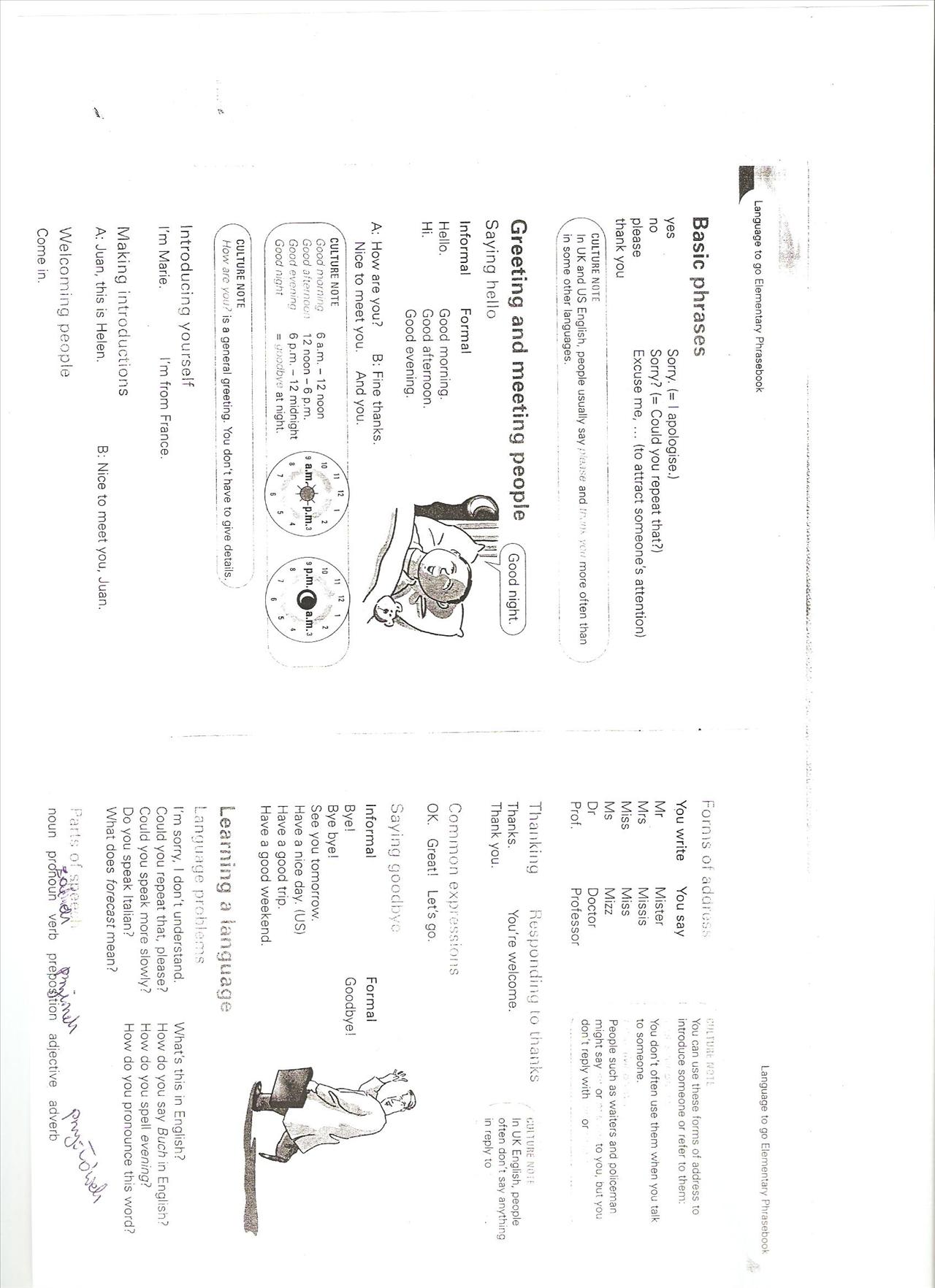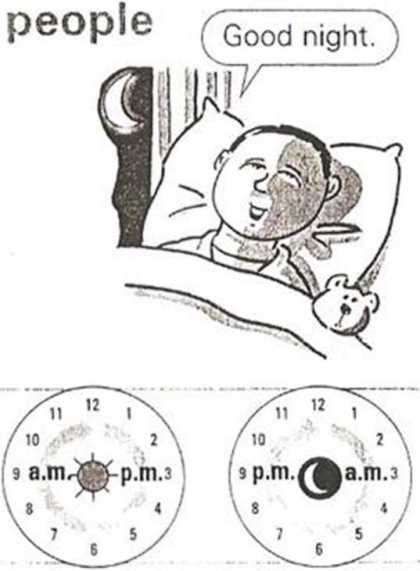kwestionariusz�2

Language to go Elementary Phrasebook
Basic phrases
yes Sorry. (= I apologise.)
no Sorry? (= Could you repeat that?)
please Excuse me, ... (to attract someone's attention)
thank you
CCULTURE NOTĘ
In UK and US English, people usually say rUu*e and : '•* /o morę often than
in some other languages.
6 a.m. - 12 noon 12 noon - 6 p.m.
6 p.m. - 12 midnight = ooodbw at night.

Greeting and meeting
Saying hello
Informal Forma!
Hello. Good morning.
Hi. Good afternoon
Good evening.
A: How are you? B: Fine thanks. Nice to meet you. And you.
CULTURE NOTĘ
Good motnmg Good a (la noc ? Good evcning Good mght
CULTURE NOTĘ
How arc yc-j? is a generał greeting. You don‘t have to give details.
Introducing yourself
Tm Marie. I'm from France.
Making introductions
A: Juan, this is Helen. B: Nice to meet you, Juan.
Welcorning people
Come in.
Language to go Elementary PhrasobooŁ
You write
Mr
Mrs
Miss
Ms
Dr
Prof.
You say
Mister
Missis
Miss
Mizz
Doctor
Professor
cmruKf mou
You can use these forms of address to introduce someone or refer to them:
You don’t often use them when you talk to someone.
People such as waiters and ooiicemar might say - or •• to you, out you don't reply with or
Thankiny
Thanks. Thank you.
Ruspondiny to thanks You're welcome.
CUllUKfc W:?
In UK English. people often don'? say anythir.g in reply to
Cominon express!ons
OK. Great! Let's go.
Sayincj good by o
Informal Format
Bye! Goodbye!
Bye bye!
See you tomorrow.
Have a nice day. (US)
Have a good trip.
Have a good weekend.
Learning a language
Language probloms
I'm sorry, I don't understand.
Could you repeat that, please?
Gould you speak morę slowly?
Do you speak Italian?
What does forecast mean?

What's this m English?
How do you say Buch in English? How do you spell evening?
How do you pronounce this word?
Hallo! .
A
noun pronoun verb
pre^o^tion adjective
adverb
Wyszukiwarka
Podobne podstrony:
kwestionariusz Language to go Elementary Phrasebook You write You say You write You say 1 o clock
6 4 the phrase of introducing the theme (get down to business )opening phrase ("joining")
CCF20110521�012 SECTION 8The effects of drugs Choose a suitable verb from the box to complete the ph
skanuj0029 (98) Gdy cewkę i kondensator połączymy szeregowo i zasilimy zmiennym prądem l, to wywoła
f20 2 Go To Go to what: Enter linę number: Address
f21 8 No matchcode ID exists forthis matchcode object. Do you want to create a mc ID? Cancel Yes I N
filozofia1 KWESTIA 2 istniał, to nie byłoby żadnego zła. Zło jednak jest w świecie. Zatem Boga nie m
skanuj0029 (98) Gdy cewkę i kondensator połączymy szeregowo i zasilimy zmiennym prądem l, to wywoła
.. PESYMIZM " 91 liislorii historiografii, są to podstawowe elementy czy aspekty syntez dziejów
town. We are inviting people from the community toour exhibit. Our parents are invited to go with us
scandjvutmp116�01 29 że jeżeli się nie uspokoi, to go zwiążemy, i tyle! — zakończył surowo. —
scandjvutmp14f�01 326 pozbawia go pobudzającej podniety; więcej to go osłabia niż wzburzone jego żąd
więcej podobnych podstron